 The United States President Donald Trump has been acquitted of all impeachment charges. The US Senate has acquitted President Trump on two articles of impeachment that are the abuse of power and obstruction to Congress. The Republican-majority Senate voted 52-48 to acquit him of abuse of power and 53-47 to acquit him of obstruction of Congress. Donald Trump is only the third US leader ever placed on trial, he readily defeated the effort to expel him from office for having illicitly sought help from Ukraine to bolster his 2020 re-election effort. The United States President Donald Trump has been acquitted of all impeachment charges. The US Senate has acquitted President Trump on two articles of impeachment that are the abuse of power and obstruction to Congress. The Republican-majority Senate voted 52-48 to acquit him of abuse of power and 53-47 to acquit him of obstruction of Congress. Donald Trump is only the third US leader ever placed on trial, he readily defeated the effort to expel him from office for having illicitly sought help from Ukraine to bolster his 2020 re-election effort. |
 Sri Lanka celebrated its 72nd Independence Day on 4th February 2020. On this day, Sri Lanka became an independent nation after getting independence from Britain. Military parades and air shows were the most attractive points of the Sri Lankan Independence Day celebrations held in Colombo. The major change in the celebration ceremony was the National Anthem of Sri Lanka as it was sung only in Sinhala and not in Tamil language. The national anthem was used to be sung in both the languages since 2016. Sri Lanka celebrated its 72nd Independence Day on 4th February 2020. On this day, Sri Lanka became an independent nation after getting independence from Britain. Military parades and air shows were the most attractive points of the Sri Lankan Independence Day celebrations held in Colombo. The major change in the celebration ceremony was the National Anthem of Sri Lanka as it was sung only in Sinhala and not in Tamil language. The national anthem was used to be sung in both the languages since 2016. |
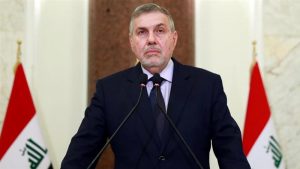 Mohammed Tawfiq Allawi was appointed as Iraq’s new Prime Minister by President Barhim Salih. He will replace Adil Abdul-Mahdi who resigned in November 2019 due to anti-government protests. Mohammed Allawi served twice as communications minister under Former PM Nouri al-Maliki. The 2019 Iraq Protests Mohammed Tawfiq Allawi was appointed as Iraq’s new Prime Minister by President Barhim Salih. He will replace Adil Abdul-Mahdi who resigned in November 2019 due to anti-government protests. Mohammed Allawi served twice as communications minister under Former PM Nouri al-Maliki. The 2019 Iraq Protests |
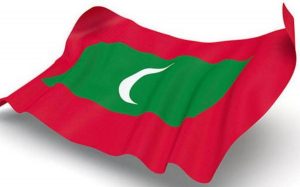 Maldives has returned to Commonwealth after its exit in 2016 and hence, has become the 54th member of the global body. The inclusion of Maldives into Commonwealth become effective from one minute past midnight on 1 February just after the exit of United Kingdom from the European union. The Commonwealth secretary general Patricia Scotland announced the rejoining of Maldives in the Commonwealth after ensuring Maldives’ alignment with the values and principles of the Commonwealth and the consultations with the other Commonwealth nations for Maldives’ readmission. Maldives became a member of the Commonwealth for the first time in 1982. Maldives has returned to Commonwealth after its exit in 2016 and hence, has become the 54th member of the global body. The inclusion of Maldives into Commonwealth become effective from one minute past midnight on 1 February just after the exit of United Kingdom from the European union. The Commonwealth secretary general Patricia Scotland announced the rejoining of Maldives in the Commonwealth after ensuring Maldives’ alignment with the values and principles of the Commonwealth and the consultations with the other Commonwealth nations for Maldives’ readmission. Maldives became a member of the Commonwealth for the first time in 1982. |
|
|
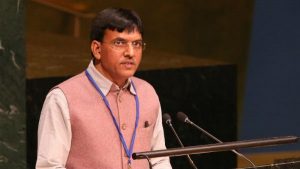 The Union Minister of State for Shipping (I/C) Mansukh Mandaviya participated in the High-level roundtable of United Nations AIDS (UNAIDS) programme at the World Economic Forum (WEF) in Davos, Switzerland. The theme of the programme is “Access for all: Leveraging Innovations, Investments and Partnerships for Health”. The main objective of the programme is to coordinate global action on the AIDS disease and alleviate its impact. It was established in 1994. The Union Minister of State for Shipping (I/C) Mansukh Mandaviya participated in the High-level roundtable of United Nations AIDS (UNAIDS) programme at the World Economic Forum (WEF) in Davos, Switzerland. The theme of the programme is “Access for all: Leveraging Innovations, Investments and Partnerships for Health”. The main objective of the programme is to coordinate global action on the AIDS disease and alleviate its impact. It was established in 1994. |
|
|
 The Bilateral International Treaty organization, an international arbitration tribunal recently dismissed all the claims against India. The Bilateral International Treaty organization, an international arbitration tribunal recently dismissed all the claims against India. |
|
|
|
|
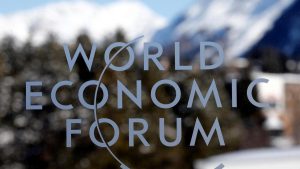 The 50th Annual Meeting of the World Economic Forum begins in Davos, Switzerland. On the Indian side, Commerce and Industry Minister Piyush Goyal will lead the delegation to the WEF. This year programme will focus on achieving the maximum impact on the Forum’s platform for public-private cooperation. This year 50th Annual Meeting of the World Economic Forum theme will be “Stakeholders for a Cohesive and Sustainable World”. The 50th Annual Meeting of the World Economic Forum begins in Davos, Switzerland. On the Indian side, Commerce and Industry Minister Piyush Goyal will lead the delegation to the WEF. This year programme will focus on achieving the maximum impact on the Forum’s platform for public-private cooperation. This year 50th Annual Meeting of the World Economic Forum theme will be “Stakeholders for a Cohesive and Sustainable World”. |
The Programme for the Annual Meeting will prioritize six key areas: ecology, economy, society, industry, technology, and geopolitics.
|
| These initiatives aim to plant more than one trillion trees over the next decade and to equip one billion people with the necessary skills in the age of the 4th Industrial Revolution. The welcome message was followed by the annual crystal awards and this year’s recipients included celebrity film star Deepika Padukone. She has been given the award for her leadership in raising mental health awareness. These awards are given to those cultural leaders, who are improving the state of the world through their contributions to inclusive and sustainable change. |
 The US tech giant Microsoft has announced that it would become “carbon negative” by year 2030. The announcement has been made in the form of its increased efforts to combat the climate change. The company announced that it vows to eliminate all the carbon emissions created by the company since its inception in 1975. Microsoft has also announced its investment of $1 billion in a “climate innovation fund” for technology for carbon capture and removal. The US tech giant Microsoft has announced that it would become “carbon negative” by year 2030. The announcement has been made in the form of its increased efforts to combat the climate change. The company announced that it vows to eliminate all the carbon emissions created by the company since its inception in 1975. Microsoft has also announced its investment of $1 billion in a “climate innovation fund” for technology for carbon capture and removal. |
 Labour Party candidate Robert Abela elected as 14th prime minister of Malta with 57.9% of the vote. He defeated his closest rival Chris Fearne. He will replace Joseph Muscat, who resigned over the murder of a journalist, Daphne Caruana Galizia. Labour Party candidate Robert Abela elected as 14th prime minister of Malta with 57.9% of the vote. He defeated his closest rival Chris Fearne. He will replace Joseph Muscat, who resigned over the murder of a journalist, Daphne Caruana Galizia. |
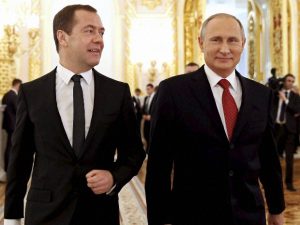 Russian Prime Minister Dmitry Medvedev has resigned. They submit their resignation to President Vladimir Putin. Medvedev would take on a new job as deputy head of Russia’s Security Council. The changes would include giving parliament the power to choose the prime minister and senior cabinet members, instead of the president as in the current system. Russian Prime Minister Dmitry Medvedev has resigned. They submit their resignation to President Vladimir Putin. Medvedev would take on a new job as deputy head of Russia’s Security Council. The changes would include giving parliament the power to choose the prime minister and senior cabinet members, instead of the president as in the current system. |
You need to login to perform this action.
You will be redirected in
3 sec
